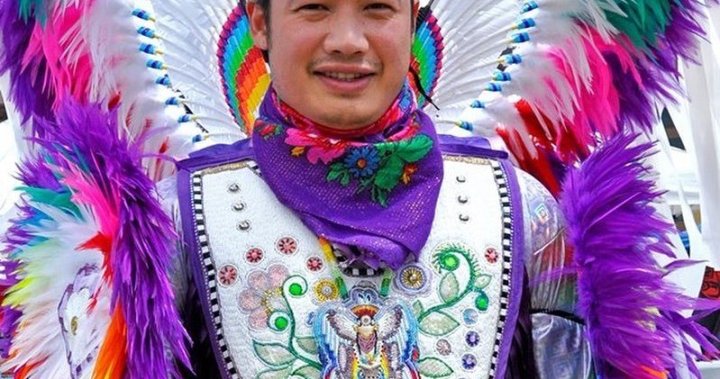
Sask. world champion powwow dancer to perform, represent Canada at Super Bowl
Global News
A world champion powwow dancer from northern Saskatchewan will be representing his cultural Indigeneity through his performance on Sunday's Super Bowl LVII in Arizona.
A champion men’s fancy powwow dancer from northern Saskatchewan will be performing on a larger stage at this year’s Super Bowl LVII in Arizona. Patrick Mitsuing from the Makwa Sahgaiehcan First Nation, will be representing Canada’s Indigenous culture with his performances leading up to and during the Super Bowl on Sunday.
According to a release, Mitsuing will be part of a once-in-a-lifetime opportunity as the National Football League’s decision to recognize the Indigenous land on which the games take place on, for the first time in 56 Super Bowls.
“I performed for large events, but nothing like this,” Mitsuing said. “I’m always nervous when I dance. I want to put on a good show, and I want to do my best every time I’m out there … but as soon as I hear that drum, all that (nervousness) melts away. I’ve been doing this for years and years and years, so I just got to do what I do best, and that’s to dance.”
Mitsuing will be joined by other Indigenous powwow dancers from across the country. Indigenous Enterprise reached out to the big Indigenous artists and performers including world-class champion dancers including Mitsuing.
The fancy dancer co-operates “Powwow Times,” which is the largest online media site to learn and embrace Indigenous culture, song and dance. His inclusion in one of the United States’ largest sporting events is what he calls, an act of reconciliation.
“They’re witnessing what we’re doing in Canada and starting to implement it, especially in Phoenix,” he said. “I think they’re really starting to follow suit. So, the Super Bowl (organizers are) doing things that they’ve never done. They’re planning a land acknowledgment.“
According to a land acknowledgement statement, the parks and recreation department acknowledges the City of Phoenix is located within the homeland of the O’Odham and Piipaash peoples and their ancestors, who have inhabited this landscape from time immemorial to the present day.
“The landscape is sacred and reflects cultural values central to the O’Odham and Piipaash way of life and their self-definition,” according to the statement on the city’s website. “This acknowledgment demonstrates our commitment to work in partnership with the Ancestral Indigenous Communities to foster understanding, appreciation, and respect for this heritage.”











